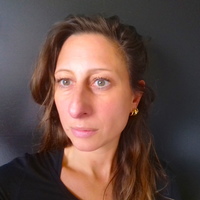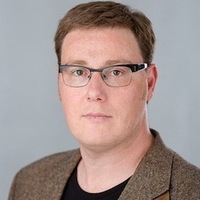A.M. Di Tolla - E. Francesca (eds.), Emerging Actors in Post- Revolutionary North Africa. Gender Mobility and Social Activism, STUDI MAGREBINI, Università di Napoli L’Orientale”, Napoli 2017, 2016
PDF-->https://unora.unior.it/handle/11574/176355#.W59whv4zbOQ
This paper explores some discourses... more PDF-->https://unora.unior.it/handle/11574/176355#.W59whv4zbOQ
This paper explores some discourses and actions oriented to a new conception of
the women’s body and the individual liberties that some social Moroccan actors put
in place after 2011. On the one hand, it analyzes the impact of social and political
activism in urban contexts on the recognition of the formal equality between women
and men. On the other hand, it points out the importance of sexual rights in the
debates about the gender equality and the ‘right to have rights’. In particular,
through the analysis of some political and artistic experiences in Moroccan civil
society, it demonstrates the emergence and the importance of gender issues and
sexual rights in the struggles for the ‘rights to recognition’. On what basis, against
what resistances and within what perspective is it possible to imagine a renewed
conception of the female body as an essential axis of the construction of gender
equality after 2011 in Morocco?











Uploads
Papers by Sara Borrillo
PDF here: http://www.rmojs.unina.it/index.php/camerablu/article/view/5703/6334
This paper explores some discourses and actions oriented to a new conception of
the women’s body and the individual liberties that some social Moroccan actors put
in place after 2011. On the one hand, it analyzes the impact of social and political
activism in urban contexts on the recognition of the formal equality between women
and men. On the other hand, it points out the importance of sexual rights in the
debates about the gender equality and the ‘right to have rights’. In particular,
through the analysis of some political and artistic experiences in Moroccan civil
society, it demonstrates the emergence and the importance of gender issues and
sexual rights in the struggles for the ‘rights to recognition’. On what basis, against
what resistances and within what perspective is it possible to imagine a renewed
conception of the female body as an essential axis of the construction of gender
equality after 2011 in Morocco?
PDF here: http://www.rmojs.unina.it/index.php/camerablu/article/view/5703/6334
This paper explores some discourses and actions oriented to a new conception of
the women’s body and the individual liberties that some social Moroccan actors put
in place after 2011. On the one hand, it analyzes the impact of social and political
activism in urban contexts on the recognition of the formal equality between women
and men. On the other hand, it points out the importance of sexual rights in the
debates about the gender equality and the ‘right to have rights’. In particular,
through the analysis of some political and artistic experiences in Moroccan civil
society, it demonstrates the emergence and the importance of gender issues and
sexual rights in the struggles for the ‘rights to recognition’. On what basis, against
what resistances and within what perspective is it possible to imagine a renewed
conception of the female body as an essential axis of the construction of gender
equality after 2011 in Morocco?
Cet acquis, salué avec faveur par certaines associations du féminisme historique marocain, a été jugé non suffisant par d’autres composantes de la société civile de nouvelle et non classique formation, qui ont continué à militer jusqu’à aujourd’hui pour la construction “substantielle” de l’égalité de genre. Parmi leurs revendications, la question du corps des femmes a été centrale.
Le persistant harcèlement sexuel et le phénomène des violences basées sur le genre ont représenté l’objet de campagnes, débats et manifestations que, surtout dans les contextes urbains de Rabat et Casablanca, ont invoqué le droit à la liberté et à des choix autodéterminées liées au corps.
Cette intervention vise à explorer les discours et les actions mis en place par certaines réalités sociales actives en contexte urbain (Rabat et Casablanca) sur le plan politique et culturel pour une nouvelle conception du corps des femmes au Maroc.
D’un côté, elle sera analysée la militance de certaines associations et groupes spontanés, et des résultats obtenus, parmi lesquels la discussion parlementaire sur un projet de lois contre le harcèlement sexuel dans l’espace publique (novembre 2013) et l’abolition parlementaire (22 Janvier 2014) de l’alinéa 2 de l’article 475 du Code pénale, qui dépénalise l’acte de violence sexuelle sur une mineure si le violeur la marrie. De l’autre côté, il sera examiné le débat soulevé autour du corps dans le monde culturel, et en particulier par le groupe de théâtre féministe Acquarium de Akkari (Rabat), qui avec la mise en scène du texte Les monologues du vagin en dharija (Dialy) a démarré une série de spectacles sur des thématiques considérées tabous au Maroc, comme le sexe, la virginité pre-matrimoniale, les mariages des mineurs. Pendant la rédaction de cet abstract, en plus, le MALI (Mouvement alternatif pour les libertés individuelles) est en train d’organiser à Rabat (le 1er Février 2014) une manifestation pour le droit à l’avortement.
Ces expériences montrent que l’action de plusieurs forces de la société marocaine, engagées pour le changement de lois et des mentalités en direction de l’égalité de genre, tourne au tour de la question du corps féminin. Sur la base de quel discours, contre quelles résistances et avec quelle perspective une renouvelée conception du corps des femmes représente un axe incontournable de la construction de l’égalité de genre au Maroc ?
La stratégie de ce discours propose deux processus parallèles: d’un coté, l’élaboration d’une exégèse des sources de la « normativité islamique » (Dupret) - le Coran et la Sunna -, inspirée à l’esprit égalitaire de la Révélation, et d'un autre coté, la promotion de la participation des femmes à l’élaboration et à la transmission du savoir islamique. Là où l’Islam en tant que dīn wa dawla, croyance et référence de l’organisation étatique, est utilisé comme source de légitimation du patriarcat, la critique islamique de genre se configure comme innovante, sinon révolutionnaire.
Au Maroc cette potentialité a été interceptée par l’état, qui a promu une féminisation des institutions religieuses à plusieurs niveaux de l’autorité islamique, en utilisant le rôle pédagogique féminin en faveur du discours canonique sur les relations de genre. A partir d’une analyse des discours des actrices religieuses, basée sur le travail ethnographique de mes études doctorales, je vais montrer qu’elles mêmes sont des « sujets » promoteurs du discours patriarcale (Mahmood).
Quel défi propose, alors, le cas marocaine à la « critique islamique de genre » ? Vu que l’état a clairement réussi dans sa stratégie de féminisme (aussi) islamique d’état (Eddauada et Pepicelli), sera convenable revenir à une représentation plus militante du féminisme islamique ? Quelle stratégie sociétale et quels acteurs est urgent d’intégrer pour créer un consensus plus transversal autour de l’égalité de genre?
“Unveiled” is a play on words with images.
It is a collection of stories of women – sometimes veiled– that aims to free our mentalities and question stereotypes.
The photo-narrative project aims at drawing attention to female profiles that make the difference breaking, accepting, contesting or modifying real and imagined boundaries of social and patriarchal rules.
L’ingresso naturalmente è libero.
In basso potete trovare il programma del seminario e riferimenti utili per poter ottenere ulteriori informazioni.
A presto
Info:
Mail: igorbaglioni79@gmail.com
Facebook:
https://www.facebook.com/events/2008547812729702/
Locandina:
https://drive.google.com/file/d/1c3YpOHv9YJKod35pN5R5BNj1_sOk_oo8/view?usp=sharing
Programma:
https://drive.google.com/file/d/1QxlGKyZoa5l1v4t9sXmIlSj7b0nahAXj/view?usp=sharing
Donne, Religioni e Maternità nel Mondo Contemporaneo
II Seminario su
Donne e Religioni nel Mondo Contemporaneo
2-3 marzo 2018
Facoltà di Lettere e Filosofia, Sapienza Università di Roma
Piazzale Aldo Moro 5, Roma
Venerdì 2 marzo - ore 10:30
Aula Odeion, Museo dell’Arte Classica
Saluti istituzionali:
Emanuela Prinzivalli, Direttore del Dipartimento di Storia, Culture, Religioni
Igor Baglioni, Direttore del Museo delle Religioni “Raffale Pettazzoni”
Luigi De Salvia, Segretario Generale “Religions for Peace Italia”
Giuliano Cugini, Presidente dell’Associazione Calliope
Prima Sessione: Donne, Religioni e Maternità dall’Antichità all’Età Contemporanea. La Ricerca e i suoi Metodi
Coordina: Igor Baglioni (Museo delle Religioni “Raffaele Pettazzoni”)
Tavola Rotonda a Margine del Libro:
Maternità e Politeismi - Motherhood(s) and Polytheisms,
a cura di Florence Pasche Guignard, Giulia Pedrucci e Marianna Scapini
Patron Editore, Bologna 2017
Intervengono:
Lorenzo Verderame (Sapienza Università di Roma)
Sergio Ribichini (Consiglio Nazionale delle Ricerche)
Giulia Pedrucci (University of Erfurt)
Pausa
Tavola rotonda:
Donne, Religioni e Maternità nelle Comunità di Migranti a Roma
Intervengono:
Franca Eckert Coen (Religioni per la Pace “Donne in Dialogo”)
Katiuscia Carnà (Università di Roma Tre)
Sara Rossetti (Studiosa di Storia Politica e Sociale dell’Europa Moderna e Contemporanea)
Venerdì 2 marzo - ore 15:00
Aula Odeion, Museo dell’Arte Classica
Seconda Sessione: Donne, Religioni e Maternità nell’Islam e nel Mondo Musulmano
Coordina: Leila Karami (Sapienza Università di Roma)
Tavola Rotonda:
Maternità e Religioni nel Medio Oriente
Intervengono:
Layla Mustapha (Islamista)
Isabella Camera d’Afflitto (Sapienza Università di Roma)
Bianca Maria Filippini (Università degli Studi di Torino)
Deborah Scolart (Università degli Studi di Roma “Tor Vergata”)
Pausa
Presentazione del libro:
Femminismi e Islam in Marocco. Attiviste laiche, teologhe, predicatrici, di Sara Borrillo
Edizioni scientifiche italiane, Napoli 2017
Interviene:
Mohammed Hashas (Università degli Studi di Roma “Luiss Guido Carli”)
Sabato 3 marzo - ore 9:30
Aula A, sezione di Storia Moderna e Contemporanea, II piano della Facoltà di Lettere e Filosofia
Terza Sessione: Donne, Religioni e Maternità in Italia e in Europa
Coordina: Roberto Caldara (Avvocato e componente del Progetto Cultura e Spettacolo e del Progetto Giovani dell’Ordine degli Avvocati di Roma)
Tavola Rotonda
Orientamenti italiani ed europei sulla Maternità
Intervengono
Melita Cavallo (già Presidente del Tribunale per i Minorenni Roma)
Adozione e affido oggi
Andrea Catizone (Avvocato, presidente di Family Smile)
Orientamenti italiani su minori
Sara Menichetti (Avvocato, esperta di diritto di famiglia)
Orientamenti europei su minori, adozioni e affido (CEDU-EDU)
Sabato 3 marzo - ore 10:00
Aula A, sezione di Storia Medievale, II piano della Facoltà di Lettere e Filosofia
Quarta sessione: Donne, Religioni e Maternità nel Sudasia
Coordina: Marianna Ferrara (Sapienza Università di Roma)
Intervengono:
Romina Rossi (Sapienza Università di Roma)
Madri impossibili: riflessioni a margine dei processi di istituzionalizzazione del “materno” nell’ideale hindu
Mara Matta (Sapienza Università di Roma)
Norma e/è dissenso: alcune riflessioni su maternità, culture e religioni in Asia meridionale
Guido Stanco (Sapienza Università di Roma),
Le principesse vedove: madri Sikh e la tragedia del 1984
Marianna Ferrara (Sapienza Università di Roma)
Da Sītā a Saritā: quando le madri della tradizione diventano “correnti” di pensiero
Nota Bene: le Sessioni Terza e Quarta sono in parallelo.
Sabato 3 marzo - ore 12:30
Aula A, sezione di Storia Moderna e Contemporanea, II piano della Facoltà di Lettere e Filosofia
Tavola Rotonda Conclusiva
Intervengono:
Igor Baglioni (Museo delle Religioni “Raffaele Pettazzoni”)
Marianna Ferrara (Sapienza Università di Roma)
Leila Karami (Sapienza Università di Roma)
Segreteria organizzativa:
Igor Baglioni (Museo delle Religioni “Raffaele Pettazzoni”)
Alessia Lirosi (Sapienza Università di Roma)
Comitato Scientifico
Igor Baglioni (Museo delle Religioni “Raffaele Pettazzoni”)
Diego Cassano (Progetto Famiglia Minori Immigrazioni Tutele)
Marianna Ferrara (Sapienza Università di Roma)
Leila Karami (Sapienza Università di Roma)
Mara Matta (Sapienza Università di Roma)
Per informazioni:
Igor Baglioni (Museo delle Religioni “Raffaele Pettazzoni”)
igorbaglioni79@gmail.com